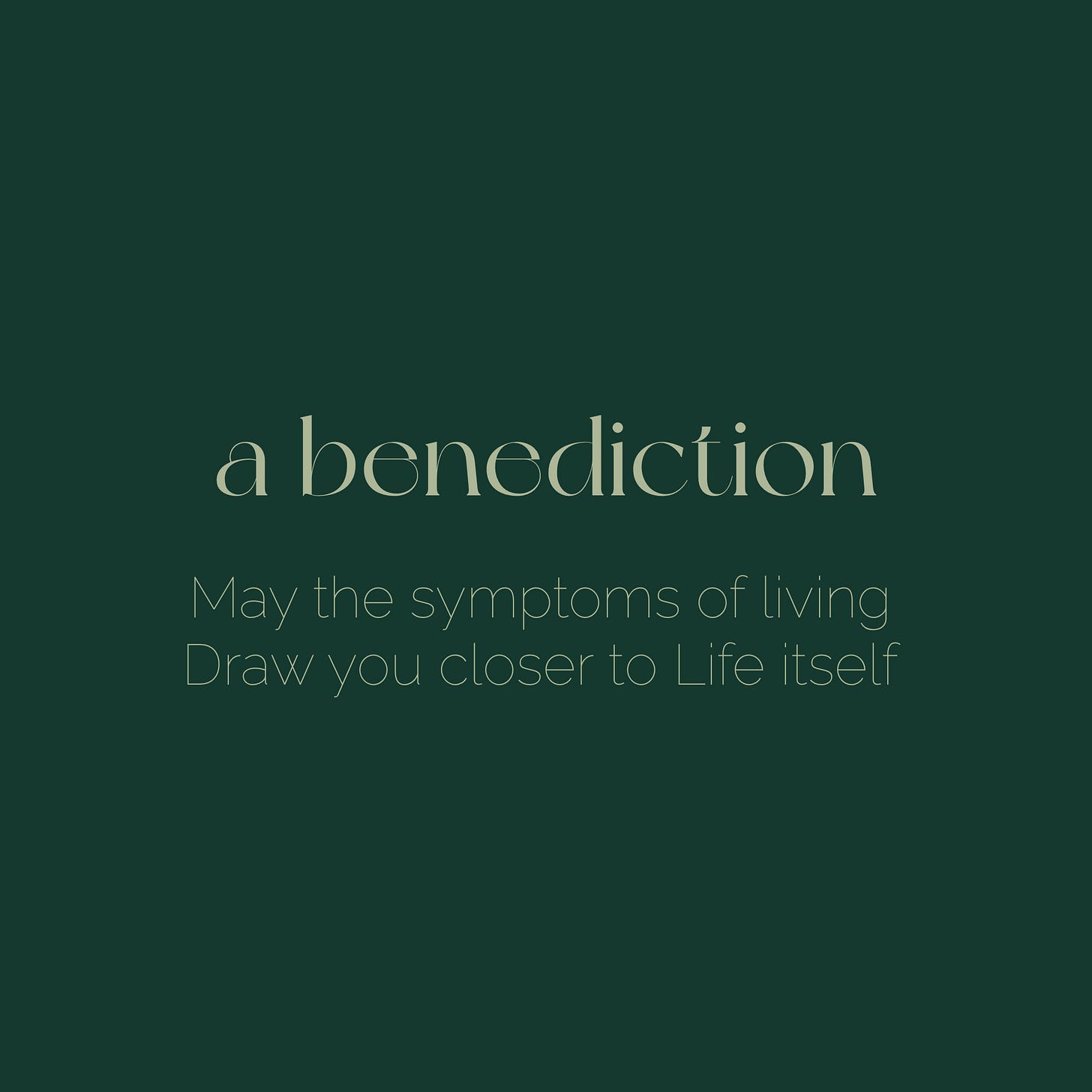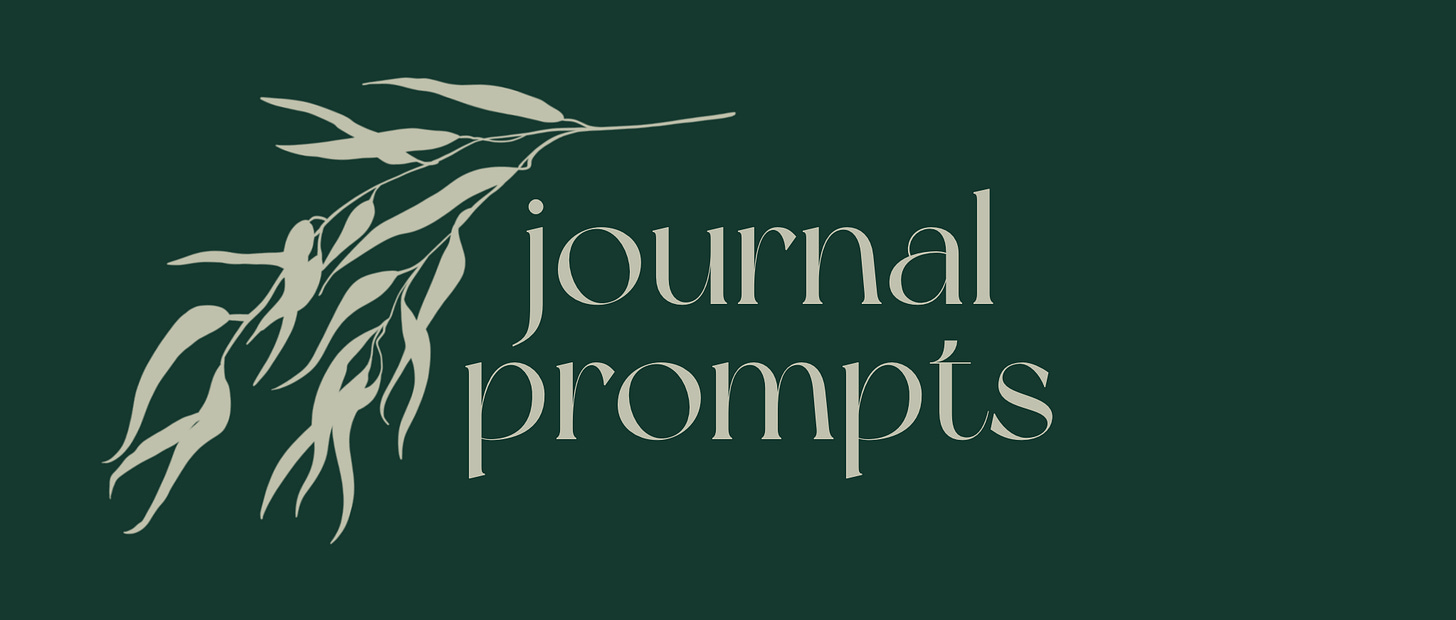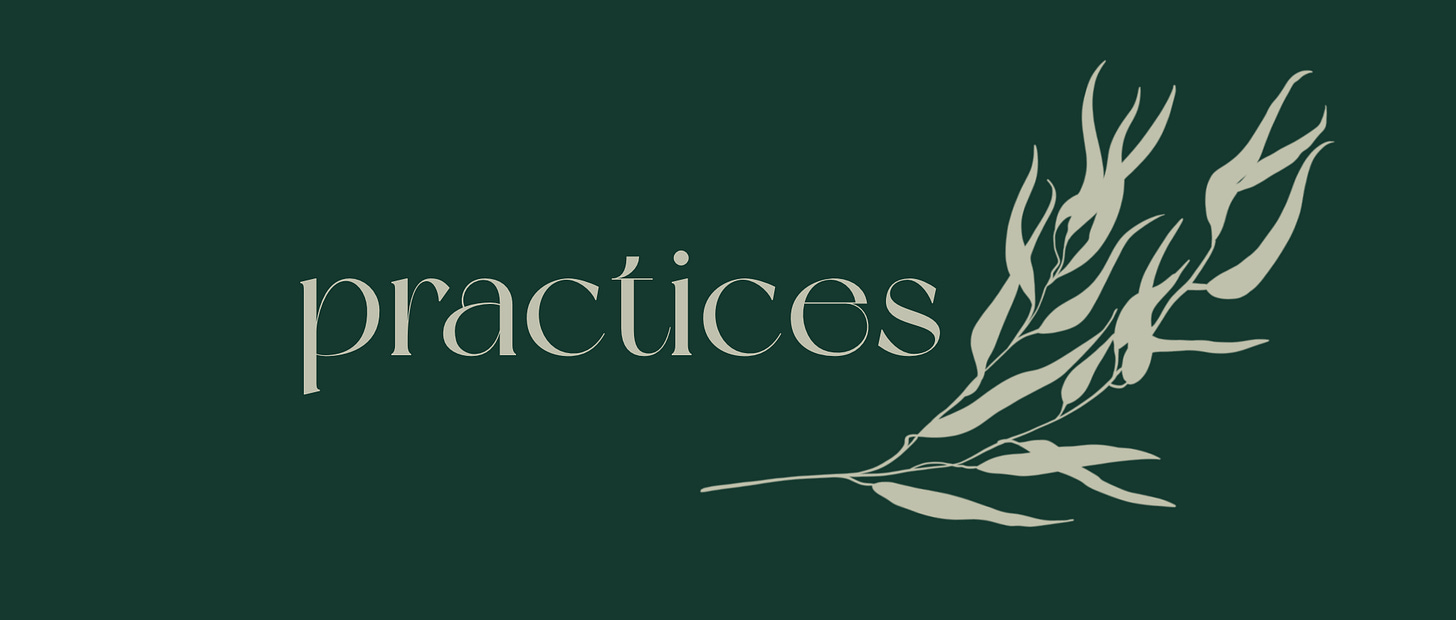The Middle 03.
Beautifully Symptomatic
I have a wonderfully nasty habit of googling the cocktail of symptoms I have at any given time. I am an amateur diagnostic, and I have been certain I have had a variety of diseases at numerous times in my life. My doctor loves this about me, because it makes her job easier1.
Lately, I’ve been consulting Dr. Google frequently as I navigate an ongoing eyelid infection. In the past three weeks, I have diagnosed myself with an autoimmune disease (update: I don’t have an autoimmune disease), something called orbital cellulitis2 (Google says this could infect your brain, so naturally I am terrified of it), and pruritus (this is literally the medical term for “itchy skin”. See? I learned something from all this googling).
The reason behind this obsessive search engine consultation is simple: I want to know why my eyelid is swelling, so I can fix it.
I mean, it is my face after all.
But this also speaks to our larger discomfort with suffering. When faced with pain of any kind, we will do whatever we can to understand why the suffering is present so we can ascertain how we can fix it. We consult whatever we can, be it google, a therapist, social media, a friend, or some other resource, to figure out what we can do to resolve it.
This can cause more distress, however, when the causes of our suffering are unclear.
Is my eyelid reacting because of the pollen outside? Or because of an allergy to makeup? Or is it because of something worse, something nefarious, something unsolvable?
Is your soul anxious because of excessive access to negative world events through social media? Or because of a chemical imbalance in your brain? Or because of something worse, something nefarious, something unsolvable?
If only we could head to Web MD, plug in the symptoms of our existential human angst, and be led right to an answer that explains it all. I bet the page would be headed like this: HUMAN NATURE. The subtext would read: you live in a broken world.
We could go on and read the symptoms.
Common symptoms of human nature may include:
Anxiety, worry, and a general feeling of powerlessness
Fatigue after too much or too little sleep, or as a personality trait
Emotional distress following significant and/or unexpected events, and/or following no perceivable pattern whatsoever
Body aches following physical output, getting out of bed the wrong way, and/or sitting or standing for too long or too little
Inability to instil positive habits, and tendency to continue negative habits
And I imagine the list could go on, and on, and on, for humans are seemingly capable of experiencing existential angst in a myriad of ways.
The suffering we feel, big and small, is at its root “beautifully symptomatic”3. We were created for the garden of Eden, but we are living in the weeds. When put this way, it dawns on me. Of course we’re uncomfortable! Of course we feel grief. Of course we experience anxiety. Of course loss hits us like a truck or that thing we’re hoping for doesn’t happen and we find ourselves gutted. Repeatedly.
We were not created for this world, and so our very being reacts accordingly when faced with its brokenness. This is not where we were supposed to belong, but it is where we are.
I used to strive to avoid pain. I thought if I got counselling, if I worked through my stuff, if I grew my relationship with God that much more, I would be able to handle anything. I have since realized that these very symptoms of living in a broken world remind me I was created for something more. The symptomatology of broken-world living pushes me to prayer, to humility, to breaking the pride off of me like the world breaks me, again and again.
And it is necessary, for if I am unaware of the brokenness of the world I am unaware of its need for a redeemer, unaware of its need for me to be soft towards that redeemer, unaware of how I might shed light and love into places and souls that need it.
Where there are symptoms that lead to diagnosis, though, there are prescriptions that lead to healing.
The prescription for living in a broken world is to carry hope with you like a blanket, and wrap it around yourself and around others in hard times. It is to remember that God redeems all things, that he makes things new. It is to pay attention to the God-glory in the world surrounding you. To notice the way the cashier’s eyes light up when you compliment them. The way the sun shines through the clouds. The way the birds sing. The way voices sound when they are joined together in worship. It is to pray, ceaselessly and with gratitude. It is to live surrendered, or cruciform (as Ann Voskamp would say). It is to read holy words of scripture and speak holy words of love. It is to see the brokenness of the world and walk with God to love it back together again.
For that is all we are called to do this side of heaven. Walk with God, and love the broken places we encounter back together again.
The next time you feel the symptoms of living in a broken world, remember: It’s just a symptom, and we’ve got the cure.
A Benediction:
May the symptoms of living
Draw you closer to Life itself
Journal Prompts:
What emotions or thought patterns do I find most uncomfortable? How might they be symptoms of a broken world?
If you are a Christian, how does knowledge of the death and resurrection of Jesus help you make meaning out of pain and brokenness?
If you are not a Christian, or if you are figuring faith out, what beliefs and values help you make meaning out of pain and brokenness?
Practices to try:
PRESCRIBE IT - Write yourself a prescription for the symptom you experience most or find most uncomfortable. For example, if you tend to become anxious after scrolling social media, you might make a prescription to go for a walk, to take a bath, or to turn your phone off for a few hours. Remember to fill it the next time you feel the symptom.
SEE IT - List ways you have noticed the brokenness of the world today. Then, list ways you have seen the beauty of the world. Keep this list handy, and add to it throughout the week.
Now for some fun stuff!
Here are things that have made me smile this month4, because we can’t talk about serious stuff all the time:
I have been devouring Andy Weir’s latest book Project Hail Mary. I love Weir’s writing and the way he can somehow include serious scientific details in a way that is not distracting or completely over my head. I can read over his physics jargon and find myself laughing, and I am severely attached to the characters. I have 70 pages left and all I wanted to do tonight is finish it, but I am writing this because I love you all. Also, because I don’t want to finish the book and lose access to my newfound friends, Rocky and Grace.
My roommate and I bought a $6 soccer ball and $6 volleyball from Wal-Mart, despite being not particularly athletic people. We have had so much fun going to the park and tossing the balls around. It’s been oodles of fun and laughter for only $12.
We did some crafts at my friends birthday party, and they were incredibly easy with a surprisingly good output. You don’t need to have any skill to make these5 plaster canvases (just look up “plaster canvas art diy” on Pinterest for lots of ideas).
Harry Style’s newest album came out in May, and I have had it on repeat ever since.
I am loving The Lazy Genius, Kendra Adachi. I love her approach to home and life maintenance, and watching her help someone sort through an overwhelming cutlery drawer gave me so much peace in my soul. There’s something healing about seeing someone else have 8000 different measuring cups that jam the drawer as you try to shut it.
This is sarcasm, but she did laugh quite hard when I told her I consulted “Dr. Google”. I think this means I have been officially diagnosed as “funny”, so I’ll take it.
In case you were wondering, my doctor has informed me I do not have orbital cellulitis.
I am off social media this month, so this edition of the middle is devoid of all funny TikTok videos. You either love this, or you miss it.
Okay, okay, this is a TikTok video but I got it from Pinterest.





This is so lovely, and I needed this today. Weird how often I need a reminder that I'm human, you'd think it would be obvious. I like the idea of finding God-glory in everything, and covering ourselves in hope like a blanket. I know when I'm really overwhelmed I need to prescribe myself God's hope!
What you write about is universal, to be sure. I'm not certain that it is all about suffering, or avoiding suffering, however. I think it is more a reaction to our discomfort with uncertainty and pathological desire for control. We want to know why...why, why, why. As Lao Tzu said, why is not a spiritual question. We don't like the fact that life is full of mystery and uncertainty.